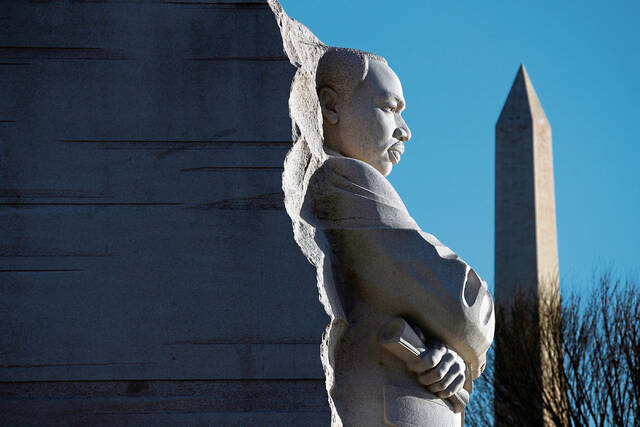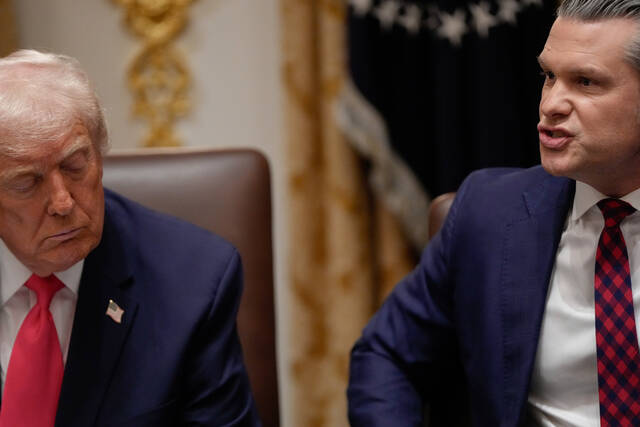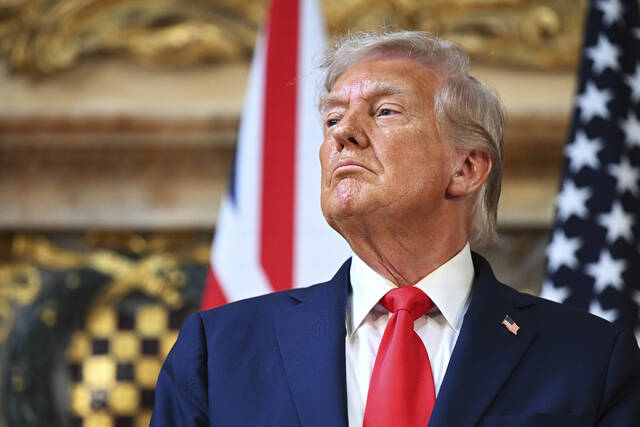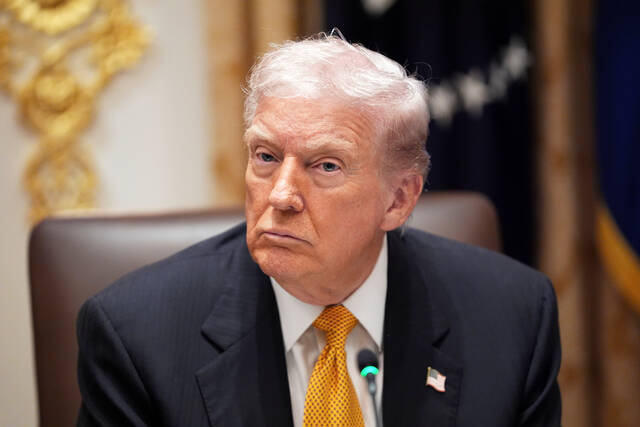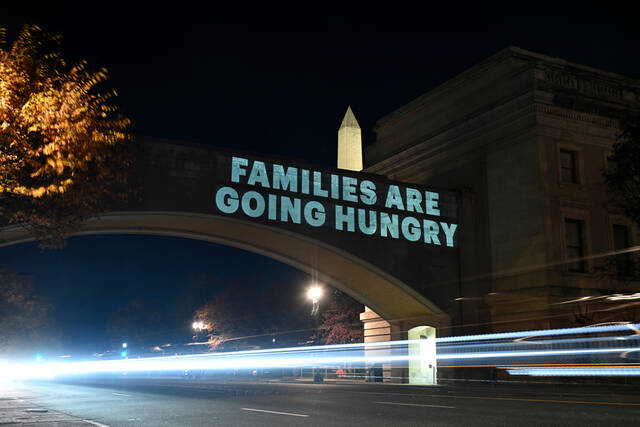America’s leaders have often come through with fine words and excellent phrases to remind us that it is hard work to keep the promise of America. For some reason, many important speeches were delivered in the month of April.
On April 3, 1968, the night before he was assassinated, Martin Luther King Jr. spoke at a Memphis church supporting striking Memphis sanitation workers. He recounted the history of racism and laid out the details of a march the following day.
“We have an opportunity to make America a better nation,” he said. And he ended by saying that he had “been to the mountaintop” and that he had “seen the promised land.”
“I may not get there with you. But I want you to know tonight, that we, as a people will get to the promised land. And I’m happy tonight. I’m not worried about anything. I’m not fearing any man. Mine eyes have seen the glory of the coming of the Lord.”
Robert F. Kennedy was in Indianapolis on April 4 when word came of King’s assassination. The police urged Kennedy to cancel his speech because rioting had already started in other cities, and there was a real threat of violence. Kennedy insisted on going.
From the back of a flatbed truck, he brought the mostly Black audience news of King’s assassination. He told them that Americans need “a feeling of justice toward those who still suffer within our country, whether they be white or they be Black.”
“For those of you who are Black and are tempted to be filled with hatred and distrust at the injustice of such an act, against all white people, I can only say that I feel in my own heart the same kind of feeling. I had a member of my family killed, but he was killed by a white man.
“Let us dedicate ourselves to what the Greeks wrote so many years ago: to tame the savageness of man and make gentle the life of this world.” There were no riots in Indianapolis that year.
On April 4, 40 years earlier, President Harry S. Truman, frustrated by the United Nations’ failure to create an international peacekeeping force, signed the NATO agreement. NATO nations agreed that if one was attacked, they would respond as if all were attacked.
“In this pact, we hope to create a shield against aggression and the fear of aggression — a bulwark which will permit us to get on with the real business of government and society, the business of achieving a fuller and happier life for all our citizens,” Truman said at signing ceremony. NATO is still a force for peace.
When President Abraham Lincoln gave his final speech April 11, 1865, two days after the Confederacy surrendered, he did not gloat. Looking forward, not back, he spoke of the “hope of a righteous and speedy peace whose joyous expression cannot be restrained.”
Lincoln talked of reintegrating the Confederate states into the Union. He began the discussion of Reconstruction, expressing his support for Black voting rights. He never got to implement his plan, but he had set the agenda for President Ulysses S. Grant to attempt a genuine Reconstruction later. Grant tried to bring former slaves fully into American citizenship and used Union troops to try to crush the emerging Ku Klux Klan.
Anyone who still thinks that words don’t matter should read these speeches. They are the words upon which a nation was built.


